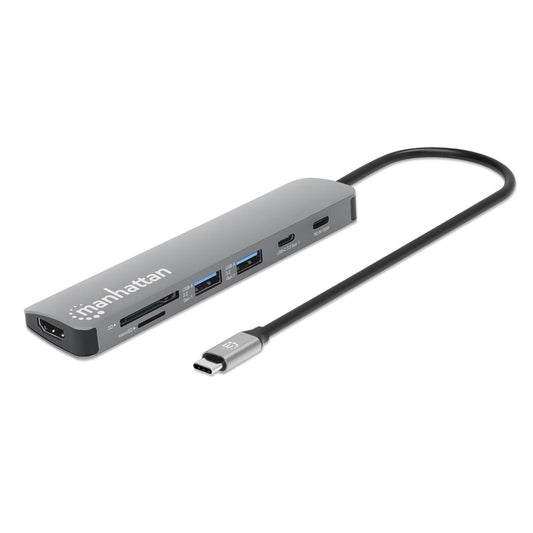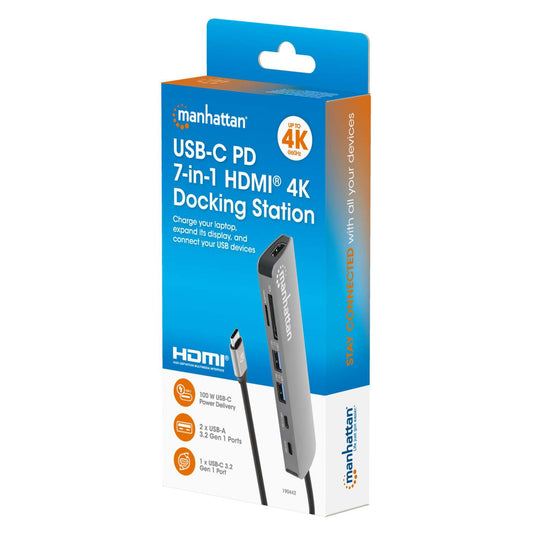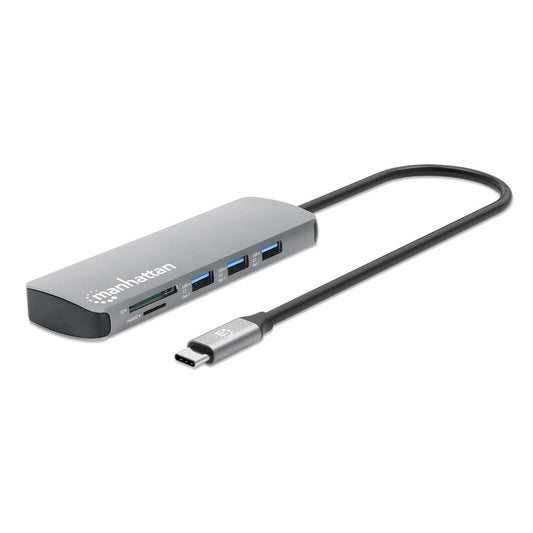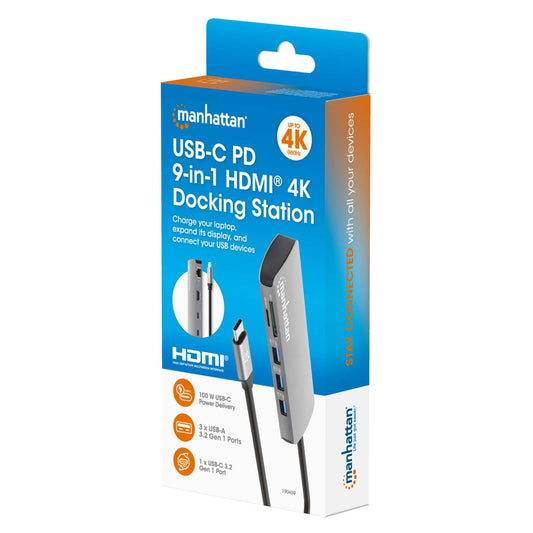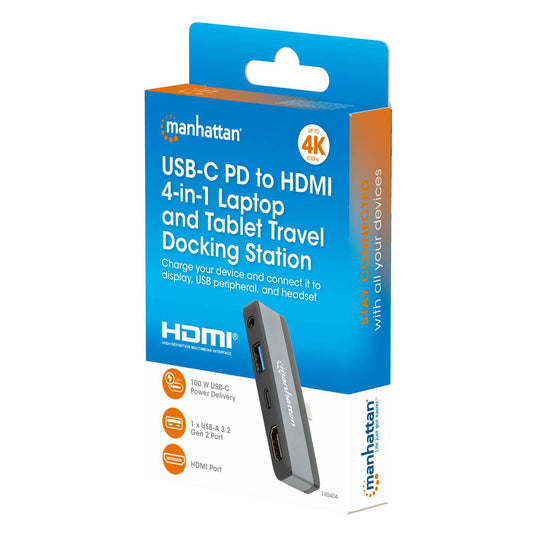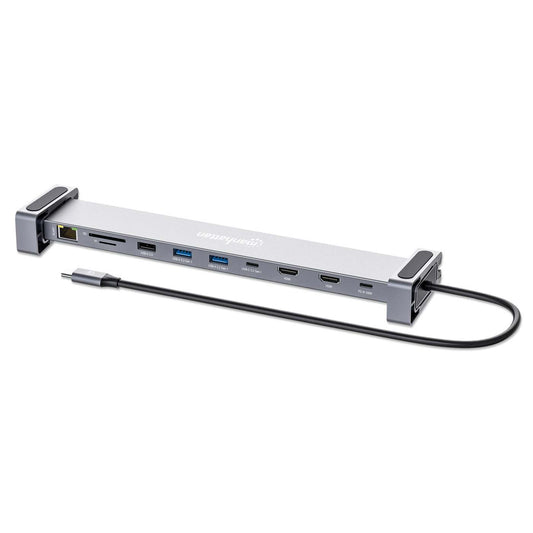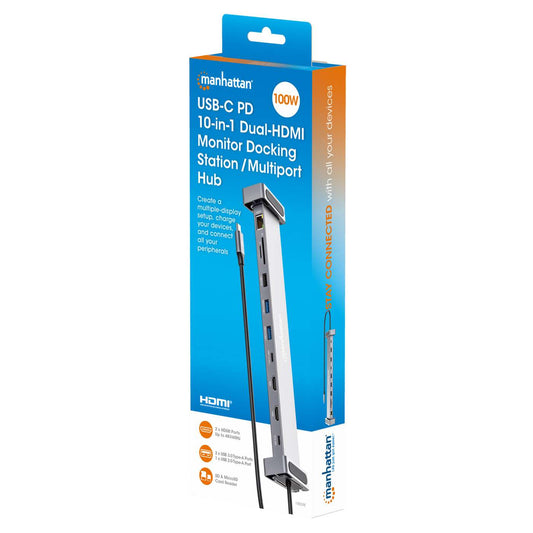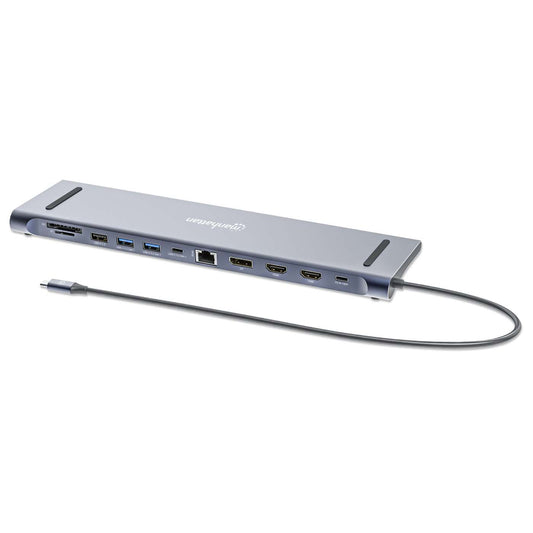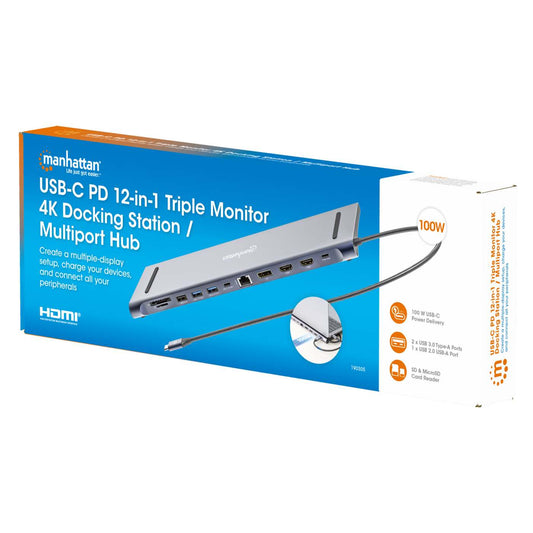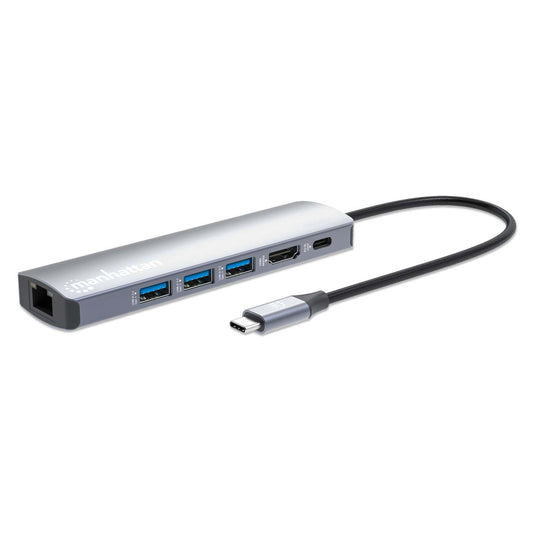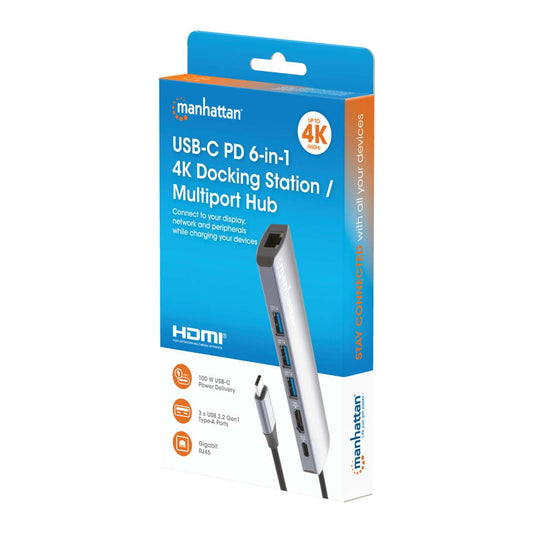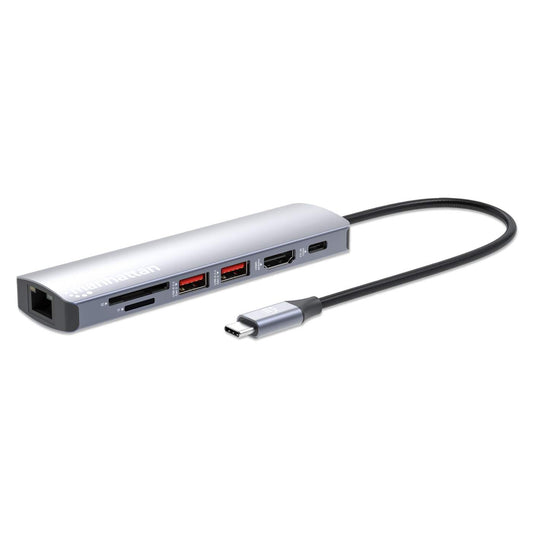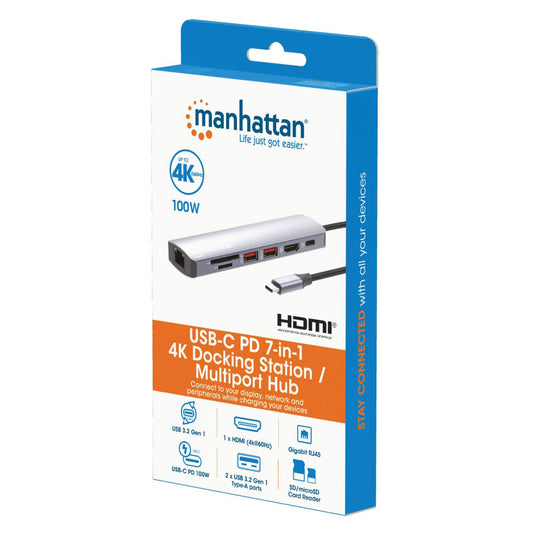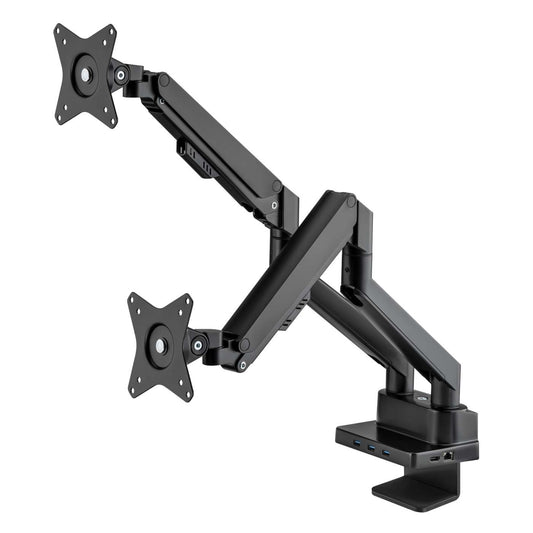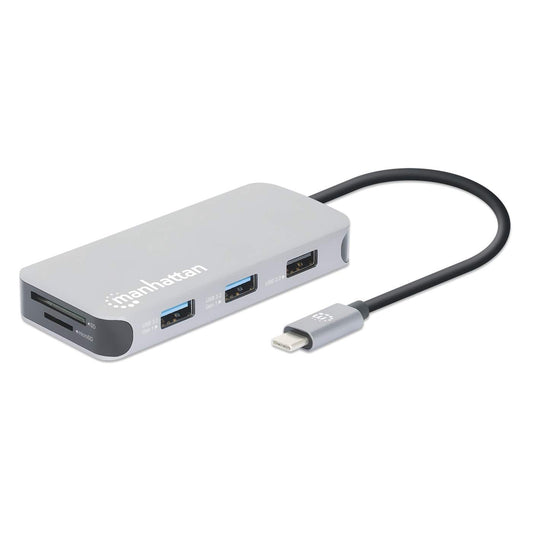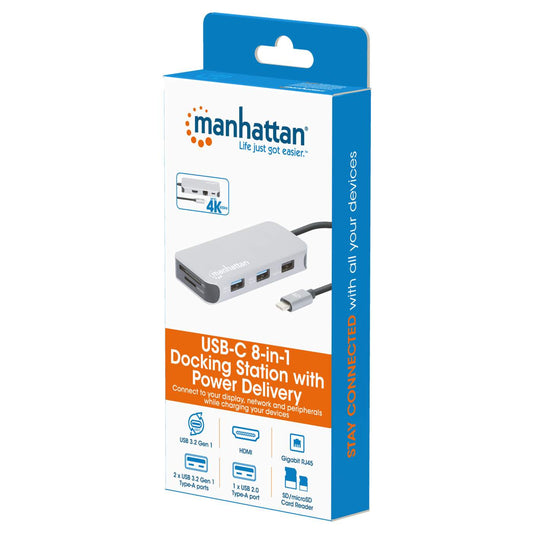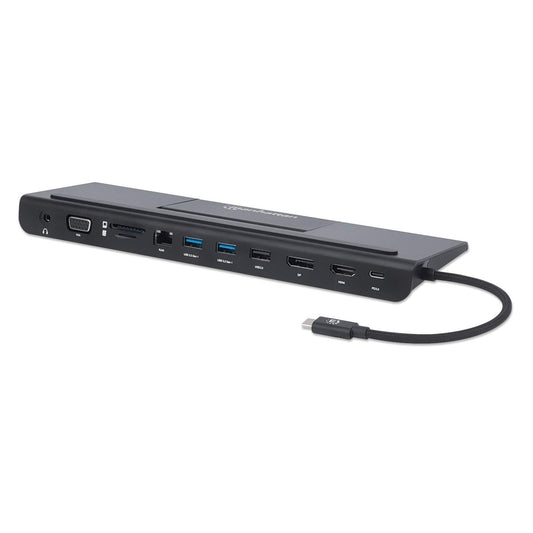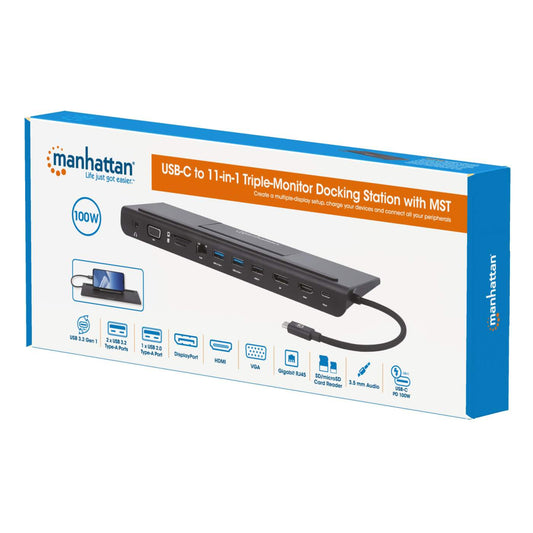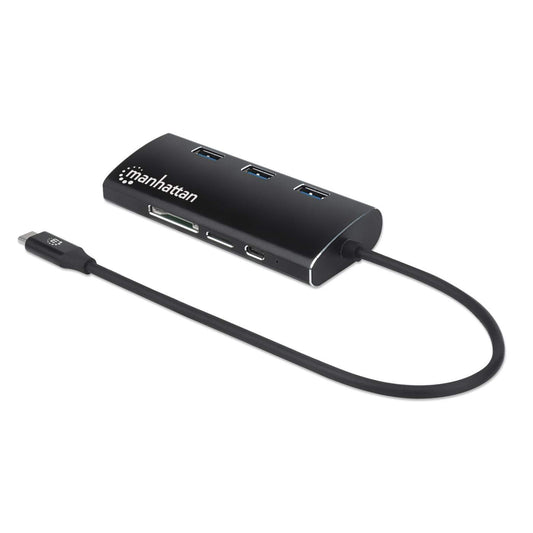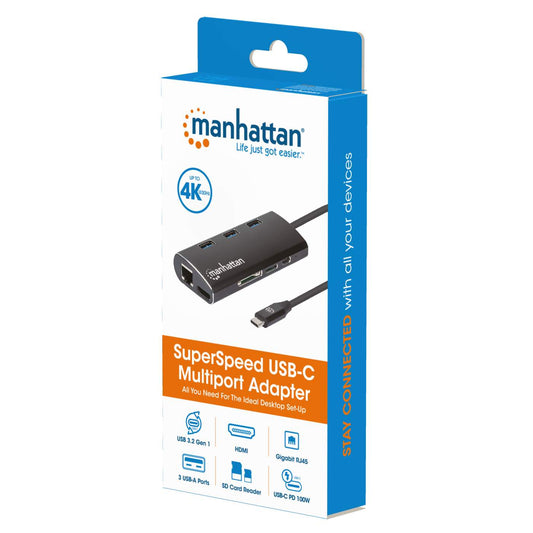
-
USB-C PD 7-in-1 HDMI 4K Docking Station / Multiport Hub
USB 3.2 Gen 1 Type-C Male to HDMI (4K@60Hz), Two USB-A (5 Gbps), USB-C Power Delivery (100 W), USB-C Data (5 Gbps) and SD/microSD Card Reader Ports, Aluminum, Space GrayPart-No.: 190442Regular price €23,99Regular priceUnit price / per -
USB-C PD 9-in-1 HDMI 4K Docking Station / Multiport Hub
USB 3.2 Gen 1 Type-C Male to HDMI (4K@60Hz), Three USB-A (5 Gbps), USB-C Power Delivery (100 W), USB-C Data (5 Gbps), SD/microSD Card Reader and Gigabit Ethernet Ports, Aluminum, Space GrayPart-No.: 190459Regular price €36,99Regular priceUnit price / per -
USB-C PD to HDMI 4-in-1 Travel Docking Station for Tablet, Phone, and Laptop
USB 3.2 Type-C Male to HDMI (4K@30Hz), USB-A (10 Gbps), USB-C Power Delivery (100 W) and 3.5 mm Audio Ports, Multiport Converter with Pass-through Charging Port, Aluminum, Black/Space GrayPart-No.: 190404Regular price €24,50Regular priceUnit price / per -
USB-C PD 10-in-1 Dual-HDMI Monitor Docking Station / Multiport Hub
USB 3.2 Gen 1 Type-C Male to Two HDMI (up to 4K@60Hz), Three USB-A (up to 5 Gbps), USB-C Power Delivery (100 W), USB-C Data (5 Gbps), SD/microSD Card Reader, and Gigabit RJ45 Ports, Aluminum, SilverPart-No.: 190398Regular price €81,99Regular priceUnit price / per -
USB-C PD 12-in-1 Triple Monitor 4K Docking Station / Multiport Hub
USB 3.2 Gen 1 Type-C Male to Two HDMI (up to 4K@60Hz), One DisplayPort (up to 4K@60Hz), Three USB-A (up to 5 Gbps), USB-C Power Delivery (100 W), USB-C Data (5 Gbps), Gigabit RJ45, SD/microSD Card Reader and 3.5 mm Audio Ports, Aluminum, SilverPart-No.: 190305Regular price €97,99Regular priceUnit price / per -
USB-C PD 6-in-1 4K Docking Station / Multiport Hub
USB 3.2 Gen 1 Type-C Male to HDMI Port (4K@60Hz), Three USB-A Ports (5 Gbps), USB-C Power Delivery Port (100 W) and Gigabit RJ45 Port, Aluminum, SilverPart-No.: 153959Regular price €56,99Regular priceUnit price / per -
USB-C PD 7-in-1 4K Docking Station / Multiport Hub
USB 3.2 Gen 2 Type-C Male to HDMI Port (4K@60Hz), Two USB-A Ports (10 Gbps), USB-C Power Delivery Port (100 W), Gigabit RJ45 Port and SD/microSD Card Reader, Aluminum, SilverPart-No.: 153966Regular price €79,99Regular priceUnit price / per -
Aluminum Gas Spring Dual Monitor Desk Mount with 8-in-1 Docking Station
Full-Motion Arms Supporting Two 17" to 32" Monitors up to 9 kg (19.8 lbs.) Each; USB-C Connectivity with 100 W Power Delivery, Two 4K HDMI Ports, Three USB 3.0 Ports, Gigabit RJ45 Port, BlackPart-No.: 461887Regular price €339,99Regular priceUnit price / per -
USB-C 8-in-1 Docking Station with Power Delivery
USB 3.2 Gen 1 Type-C Male to HDMI (4K@30Hz), Three USB-A (up to 5 Gbps), Gigabit RJ45 and USB-C PD (100 W) Females, SD/microSD Card Reader, Aluminum, SilverPart-No.: 130615Regular price €72,99Regular priceUnit price / per€89,99Sale price €72,99Sale -
USB-C 11-in-1 Triple-Monitor Docking Station with MST
USB 3.2 Type-C Male to HDMI, DP and VGA Females, Two USB 3.2 Gen 1, SuperSpeed (5 Gbps) Type-A Ports, USB 2.0 Type-A Port, USB-C PD Port, Gigabit RJ45 Port, SD/MicroSD Card Reader and 3.5 mm Audio Port; Aluminum, Dark GrayPart-No.: 153478Regular price €49,99Regular priceUnit price / per€59,99Sale price €49,99Sale -
SuperSpeed USB-C Multiport Adapter
USB 3.2 Gen 1 Type-C Male to HDMI (4K@30Hz) Female, Three Top-Mounted SuperSpeed USB-A Ports, USB-C Power Delivery (PD 3.0) Port, Gigabit RJ45 Port and SD/MicroSD Card Reader; Aluminum, BlackPart-No.: 152440Regular price €39,99Regular priceUnit price / per€59,99Sale price €39,99Sale
-

One-Cable-Solution
One cable to connect it all.
-

Plug & Play
No drivers. Ready to go.
-

Power Delivery
Stay productive with fast, efficient charging.
-

Multi Display Support
For peak productivity and clear overview.
-

Portable & Compact
Light, small, and easy to take anywhere.
FAQ's about Docking Stations
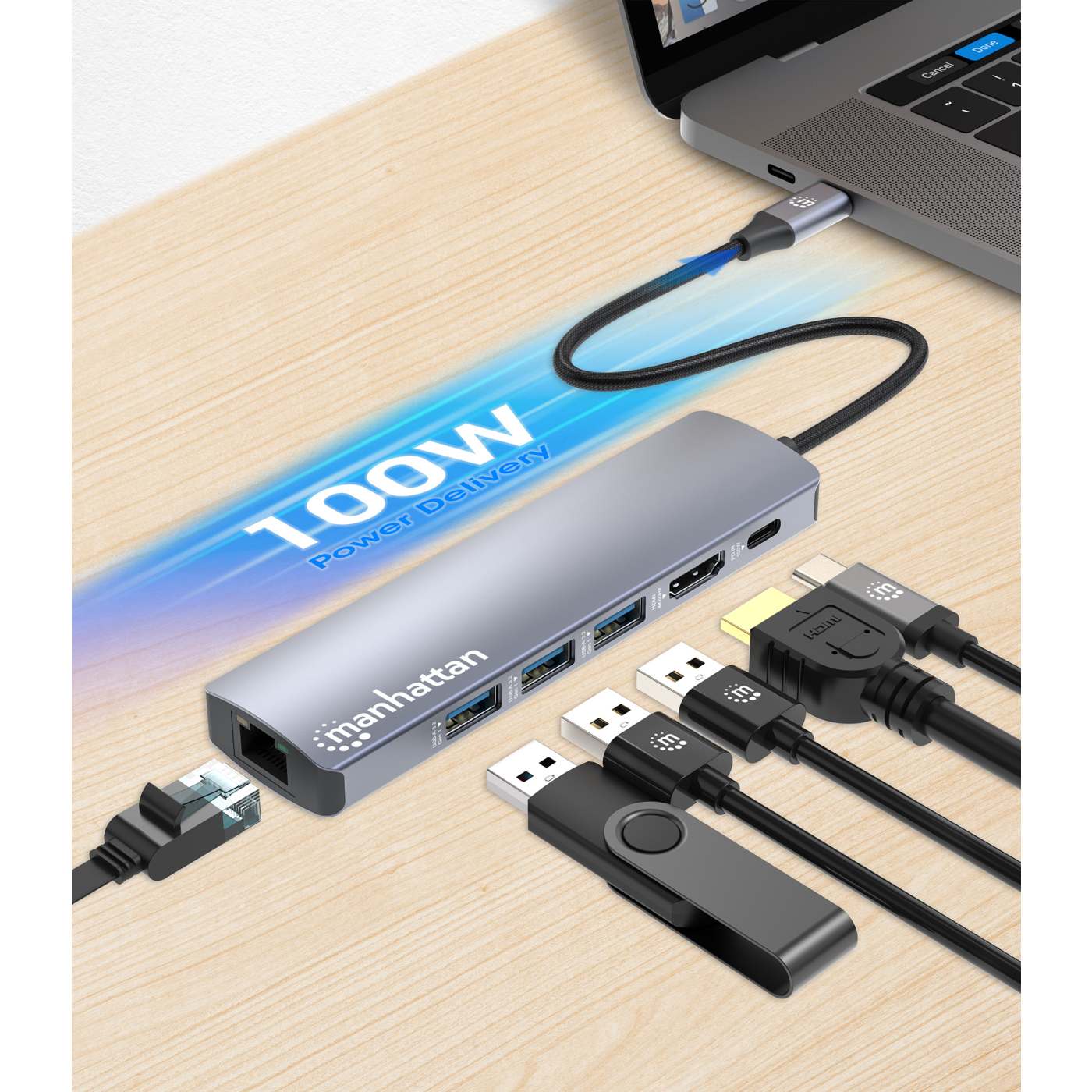
What is a docking station?
A docking station is a convenient interface that serves as a central connection between your laptop, tablet, or smartphone and your accessories.
Thanks to the wide range of available ports, you can connect your device to monitors, networks, storage media, audio equipment, and much more.
This way, your device quickly and easily becomes a central workstation, flexible for use in the office, at home, or on the go.
Is the docking station compatible with my laptop?
Our docking stations are compatible with all USB-C DP Alt Mode-supported PCs, laptops, and tablets, including Apple MacBook®, Chromebook™, Pixel™, and more.
Can I connect multiple devices at the same time?
Yes! In most cases, you can use all ports simultaneously. Depending on the docking station you choose, you can connect up to three monitors at the same time.
The number of devices you can connect simultaneously depends on the available ports of the docking station. Keep in mind that total power output (e.g., USB-C charging) and data bandwidth are shared across multiple devices during intensive use.
Can I charge my laptop via the docking station?
Yes! Thanks to USB Power Delivery (PD) support of up to 100 W, you can charge your laptop, tablet, or smartphone while using all the docking station’s connectivity features.
Simply connect an external PD charger to the USB-C charging port, and you can leave the bulky laptop power adapter in your bag.
What connectivity options are available?
Our docking stations offer a wide range of connectivity options depending on the model, including:
- USB-A ports: perfect for peripherals such as a mouse, keyboard, or USB stick
- USB 3.2 Gen 1 Type-A ports (USB 3.0): SuperSpeed data transfer up to 5 Gbps and device charging up to 4.5 W
- USB 3.2 Gen 2 Type-A ports: SuperSpeed+ data transfer up to 10 Gbps and device charging up to 4.5 W
- USB 2.0 Type-A port: data transfer up to 480 Mbps and device charging up to 2.5 W
- HDMI ports: support resolutions up to 8K@30Hz UHD-2
- DisplayPort (DP) port: supports resolutions up to 4K@60Hz UHD
- USB-C data port: provides ultra-fast data transfer for phones or tablets
- USB-C PD port: charges your laptop with up to 100 W
- Gigabit RJ45 port: for reliable 10/100/1000 Mbps speeds
- MicroSD and SD card slots: eliminate the need for an external card reader
- 3.5 mm audio ports: for high-quality stereo sound
What does Plug and Play mean?
Plug and Play means that a device, such as a docking station, is ready to use immediately and automatically as soon as it is connected.
No complicated setup or additional driver installation is required.
What data transfer speeds does the docking station support?
The data transfer speeds of our docking stations vary depending on the model and type of connection.
USB-A and USB-C ports typically support speeds of up to 5 Gbps or up to 10 Gbps.
All models are compatible with USB4® and Thunderbolt™ 3 / 4 interfaces.
Which resolutions are supported?
The supported resolutions depend on the specific docking station and the connected monitors.
Depending on the model, our docking stations support various resolutions, including 4K UHD (3840 x 2160 pixels) at 30 Hz or 60 Hz, as well as 8K (7680 x 4320 pixels) at 30 Hz.
Is the docking station suitable for home office or travel use?
Yes! Many of our docking stations are compact enough to fit in your laptop bag alongside your main device. The perfect travel companion!
Depending on the model, you can place your laptop on the docking station to save desk space. The integrated cable is long enough to connect to any USB-C port on your laptop, whether it’s on the left or right side.
What material are the docking stations made of?
Our docking stations impress with a robust yet sleek aluminum housing that looks modern and premium.
The extra-long, integrated cable features a molded aluminum sleeve for exceptional stability and durability.
Non-slip rubber feet ensure a secure stand and reliably protect your desk from scratches.
Is there a warranty?
Yes, all docking stations come with a 3-year warranty.
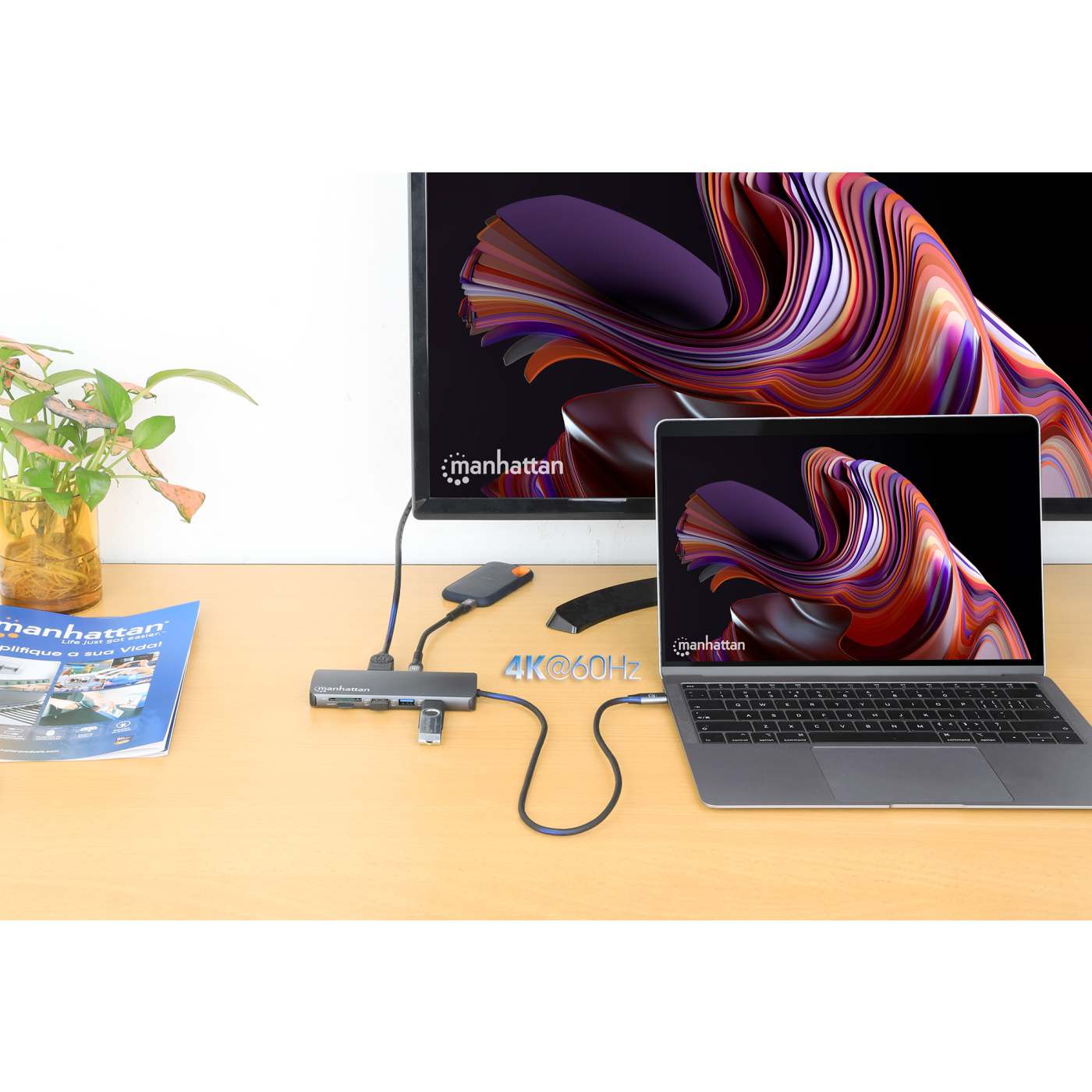
More pixels. More details. More possibilities.
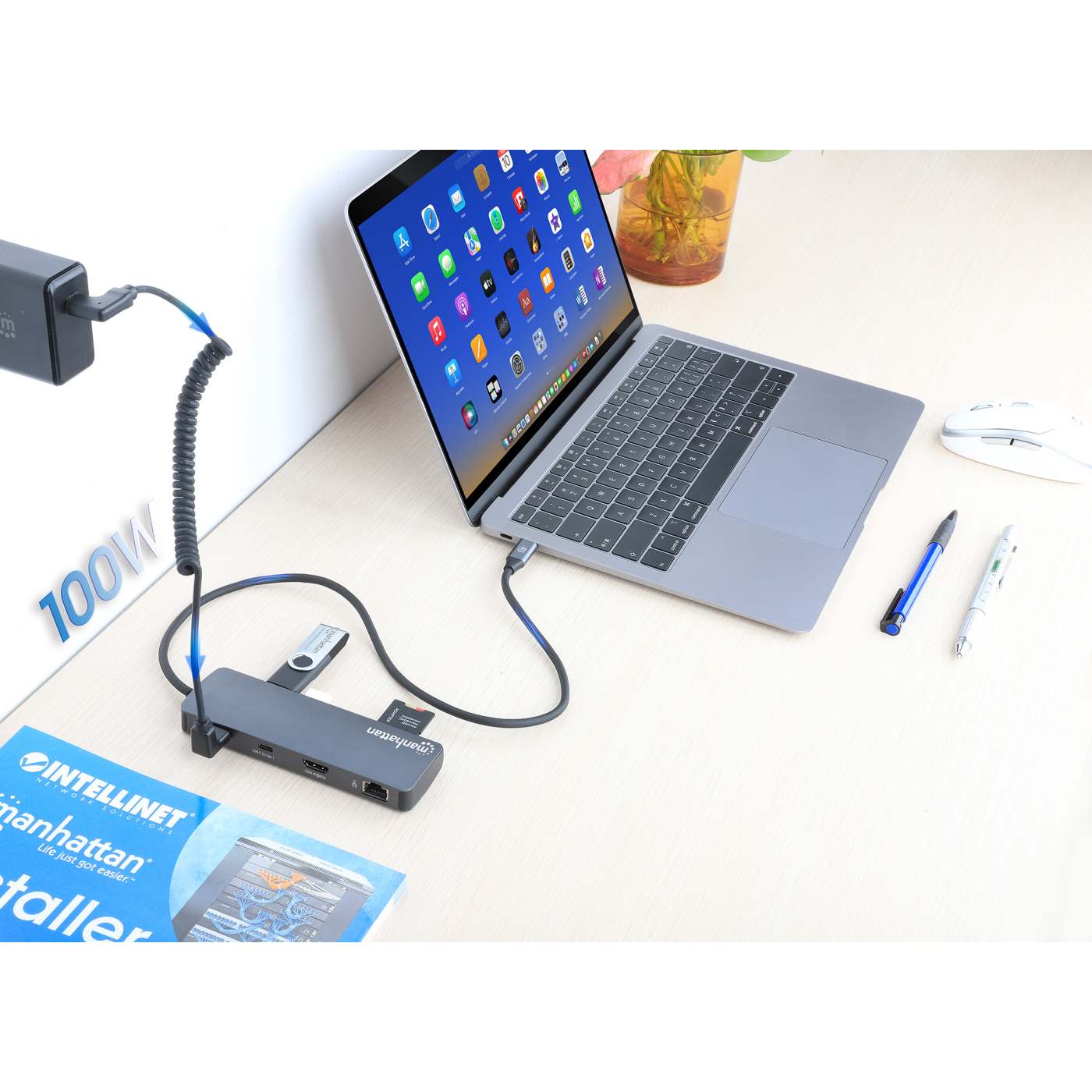
Power. Ports. Performance.
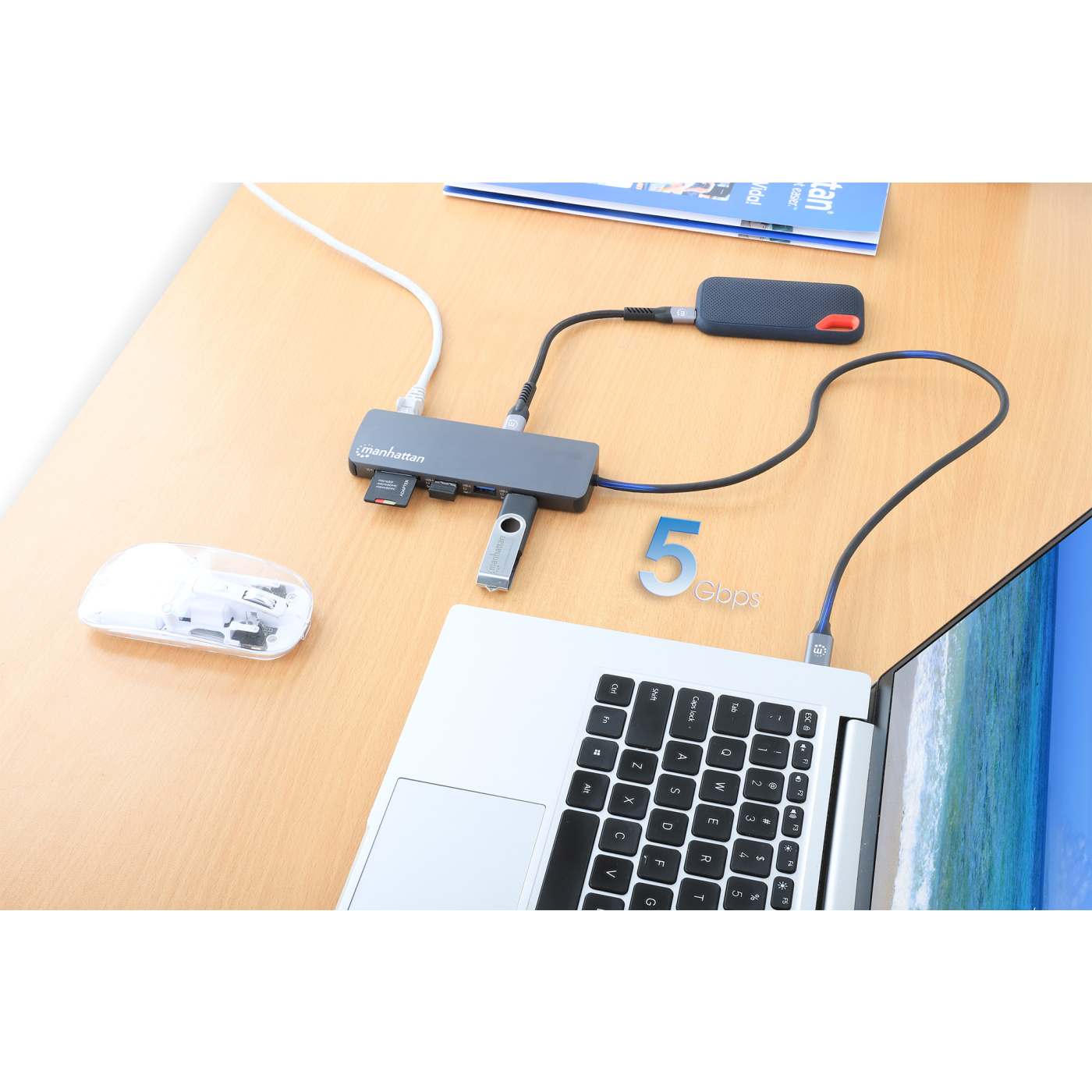
Speedy. Safe. Secure.
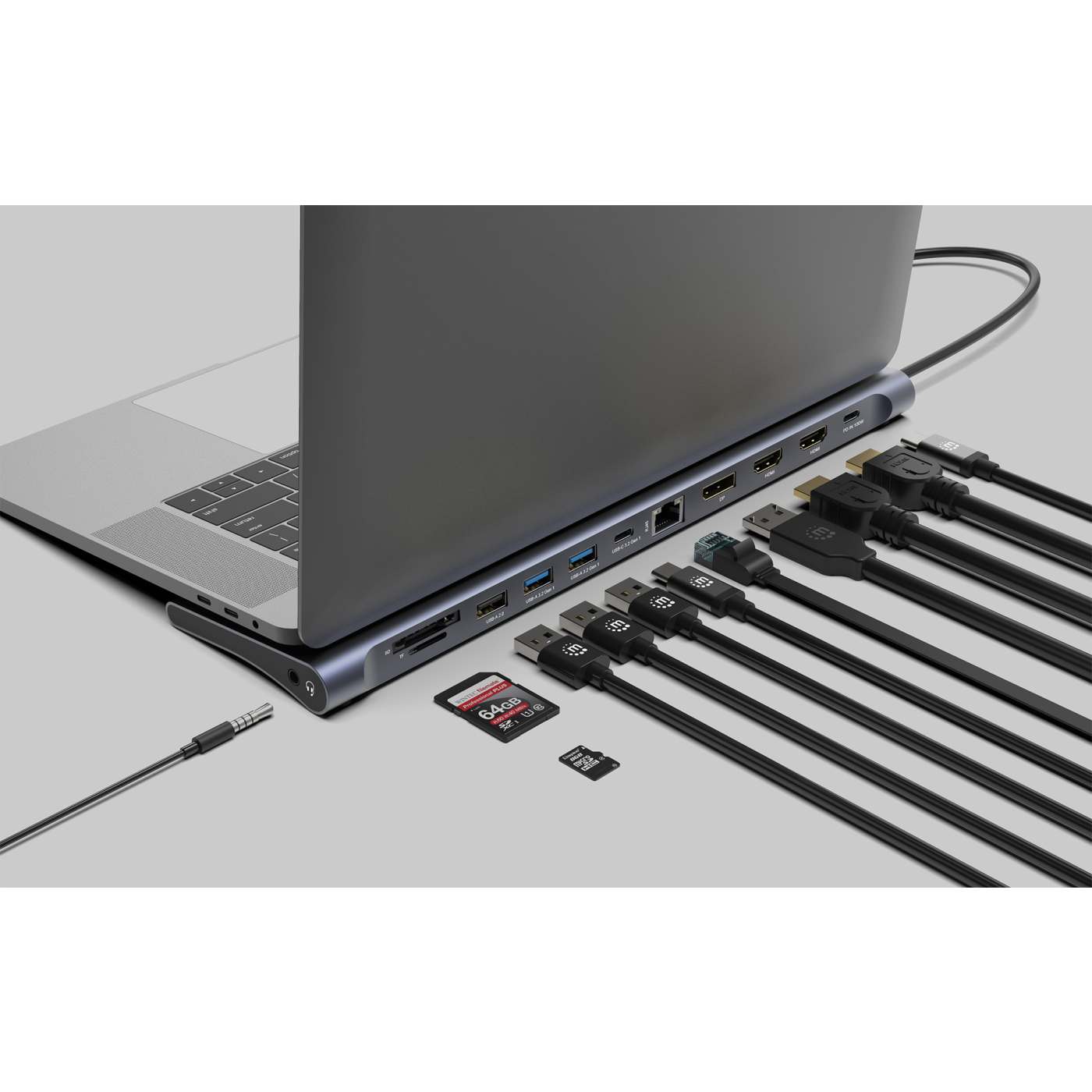
Connect. Charge. Control.
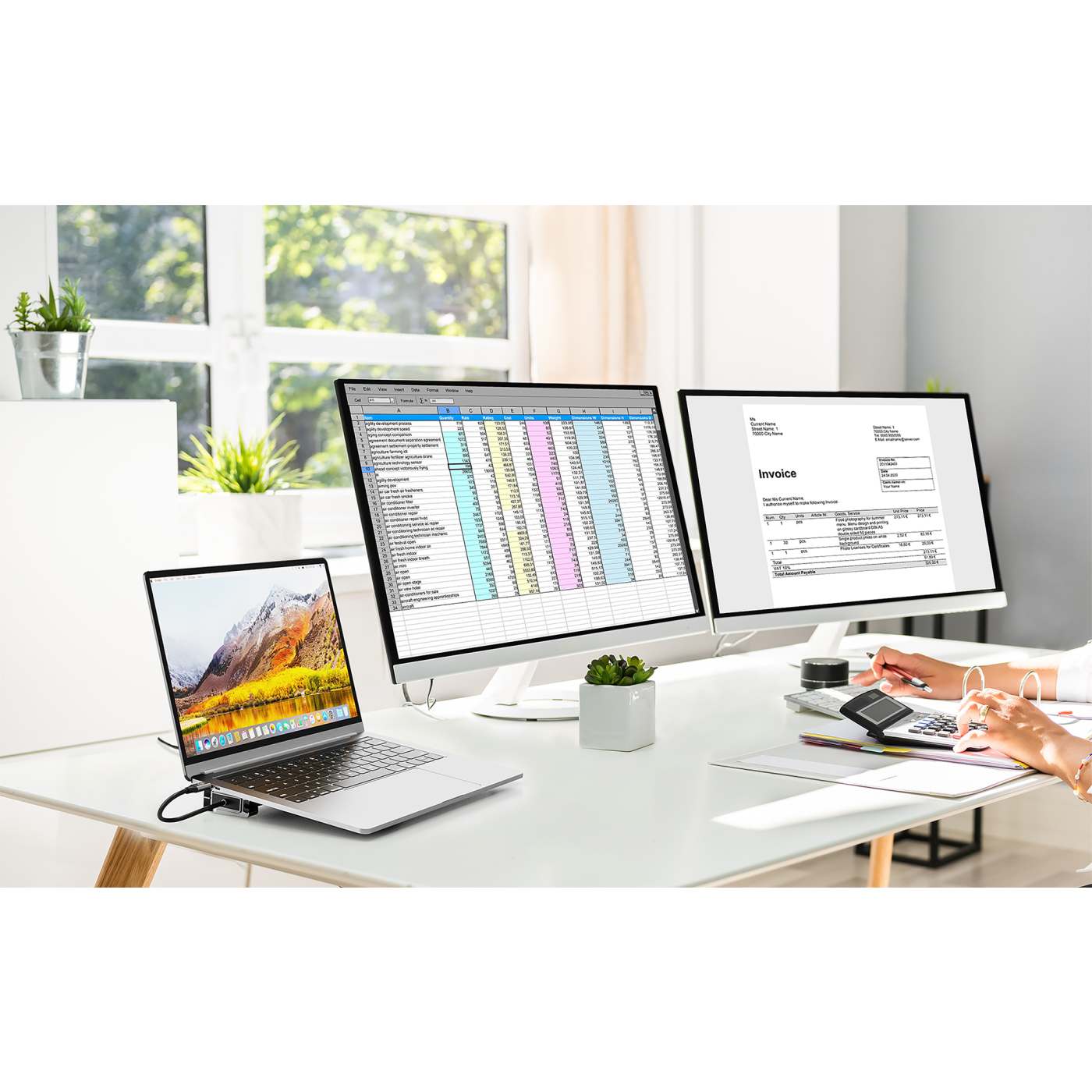
Single. Dual. Triple.
Interface Converter, Multiport Adapter, Docking Station – what are the differences?
-
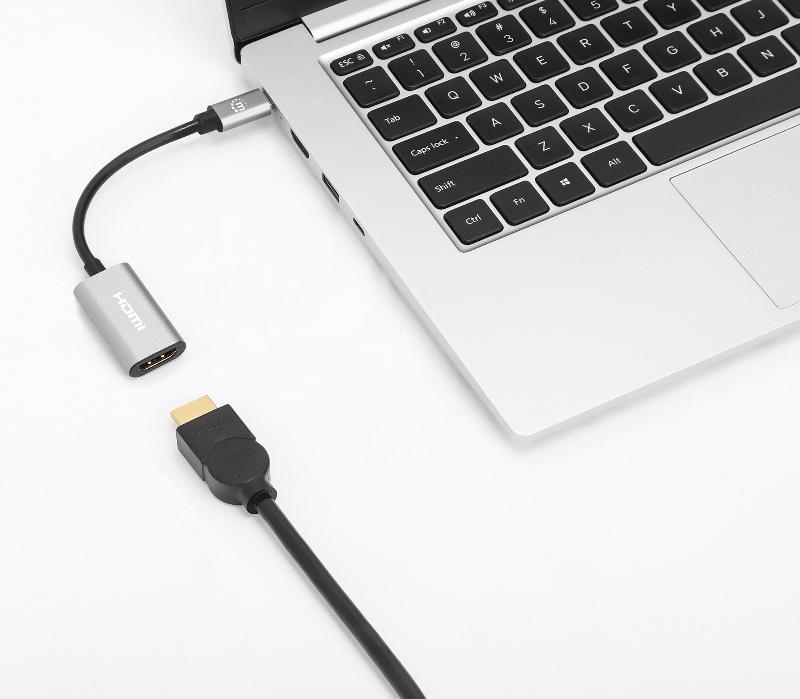
Interface Converter
- Signal conversion is carried out via USB-C on a single interface
- This can include video signal transmission via VGA, HDMI, or DisplayPort, or a conversion to a serial signal
- Makes connecting your laptop to an external display via USB-C simple
-
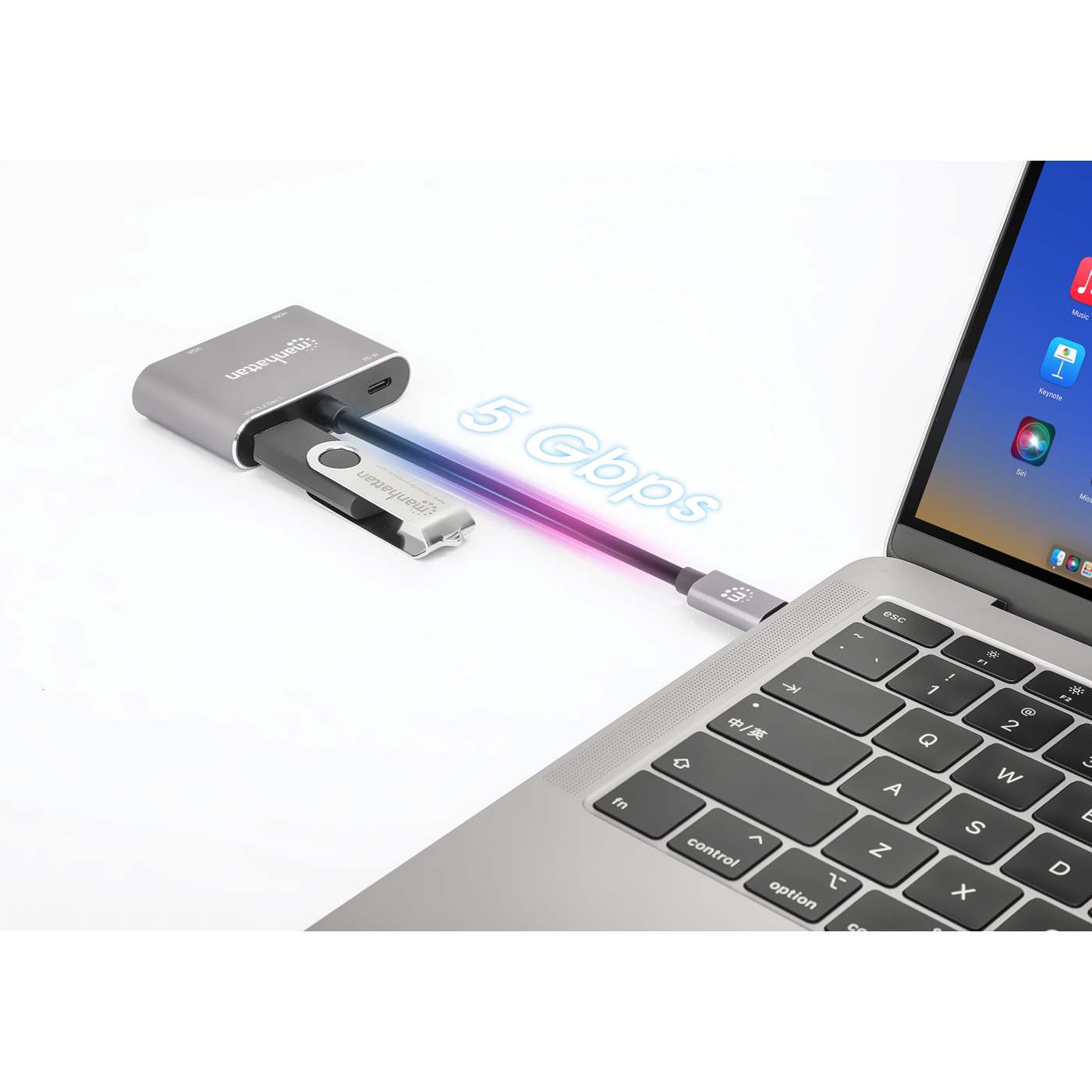
Multiport Adapter
- All essential signals are transmitted via the USB-C port and converted into various outputs
- It is usually combined with Power Delivery to charge connected devices
- In addition to connecting, for example, an external monitor, you can also attach a keyboard or mouse via USB
-
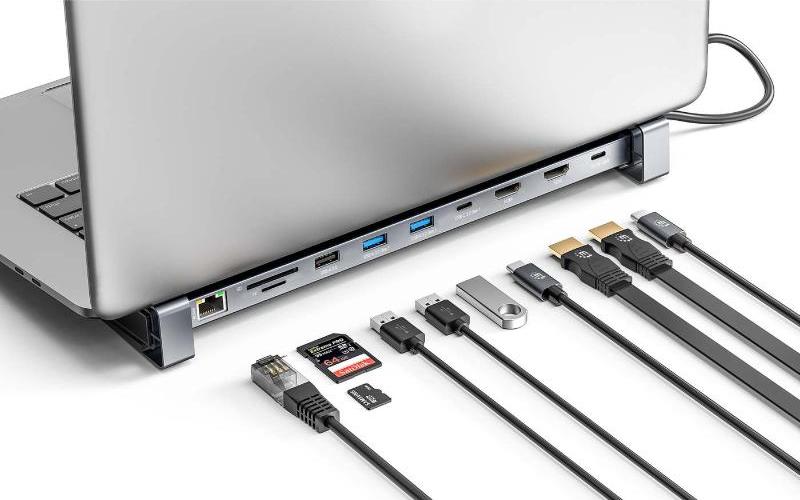
Docking Station
- The USB-C port converts signals so that you can use a wide variety of interfaces
- This allows you to easily connect all essential peripherals, such as monitors, keyboards, and mice
- This way, you can conveniently turn your device into a fully functional desktop setup

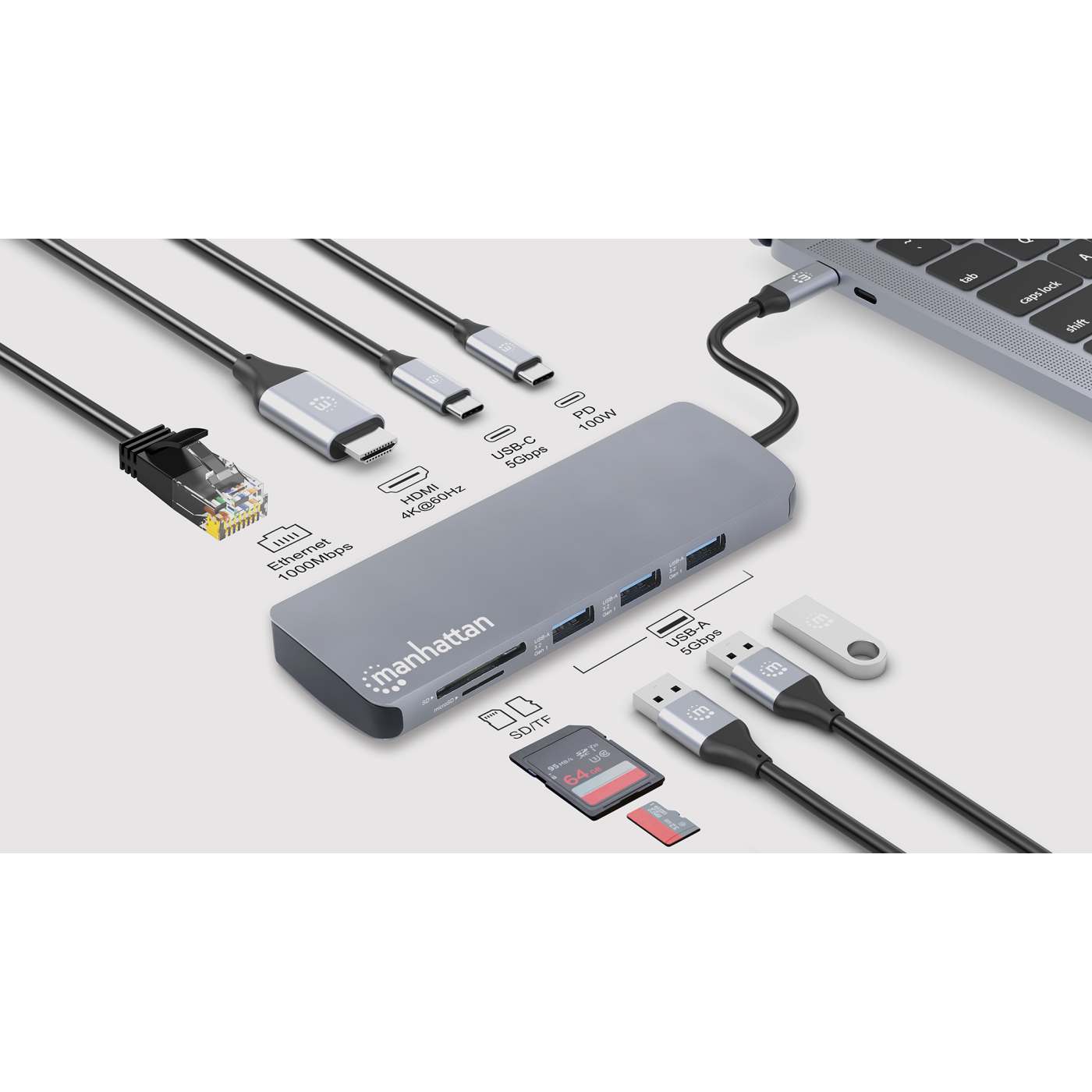
Introducing: Our New Manhattan USB-C 9-in-1 Docking Station
With a total of 9 ports, this docking station offers a wide range of connectivity options for all your devices.
Despite its versatile functionality, it remains compact and space-saving, making it perfect for both your desk and on the go.
Ckeck out the product page for more details.

